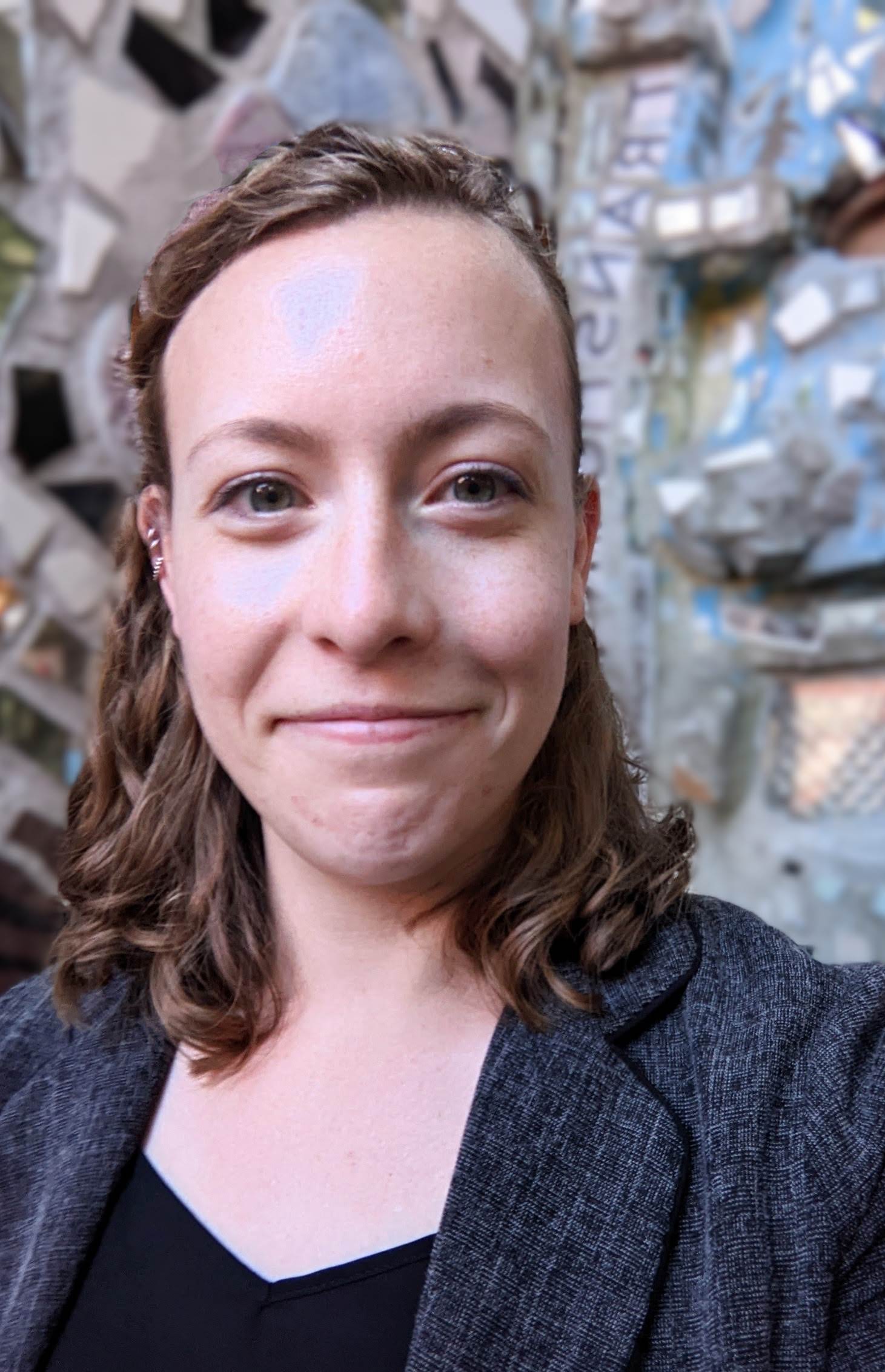Last year, the Psychonomic Society launched a program, a Science Communication internship, for graduate students to gain experience writing about scientific findings for the general public. Two new interns were selected for the second term over the next six months: Hannah Mechtenberg and Daniel Pfaff. As interns, they will be part of our Digital Content team (currently comprised of me, the Digital Content Editor, and many Digital Associate Editors) and write posts on research conducted by our members and published in the Society’s journals.
In the interview below, I asked Hannah (pictured below) several questions to get to know her better. You can follow Hannah on X (@hannah_mech) or BlueSky (@hannahmech.bsky.social) and be sure to read her posts! Here’s Hannah:

What is your area of research?
I am fascinated by how our brains transform a physical sound signal, speech, into a meaningful message. More specifically, I study cases in which uncertainty in the identity of the individual speech sounds (did they say “da” or “ba”) cascades throughout the brain when listening to sentences or longer utterances. Much of my work focuses on brain areas not commonly associated with language processing—the basal ganglia and the cerebellum—to see how they might help resolve uncertainty and move the system towards understanding.
I hope my work helps us view the brain a little differently, and to highlight how remarkable it is, amidst all the uncertainty we face in everyday conversation, that we are able to understand each other so well.
What is the most exciting concept in cognitive science?
For me, the most exciting thing about cognitive science has always been the mysteries. I first fell in love with the brain in high school anatomy class; a moment that motivated me to pursue cognitive science as an undergraduate and now as a doctoral student. This extraordinarily complex object—the size of our two fists put together—allows us to navigate the world, communicate ideas, create knowledge, and form life-long relationships and we don’t yet know how the brain does it all! In the cognitive sciences, we study and uncover how we can do all of these things while still knowing that there is so much more to learn. It’s exciting to know that there is always more to discover and that we can use what we have figured out to help make people’s lives better.
What’s the most critical unsolved challenge or unanswered question for cognitive scientists?
I think we are at a point now where it’s critical to study cognitive phenomena in vivo. Laboratory-based studies have given us a foundation for what people can do, but there are still many open questions as to whether people behave similarly in less constrained situations. Being able to study the individual experience in a variety of real-world contexts is the next big leap forward for cognitive science, which will help capture all of the exquisite variations of human behavior.
What drew you to science communication?
Talking to people about science! As an undergrad, I helped run a neuroimaging study. In the downtime before our scans, I talked to many of the participants about the science behind the study. I was blown away by their curiosity, and each of them wanted to know how the study turned out. I knew that journal articles were not written for non-scientists, so I created a little newsletter-style summary of the study and sent it out to each of our participants. They loved it, and from that moment on I was hooked on finding more ways to connect people with science of all types. I’m looking forward to writing blog posts and learning more about effective science communication in this internship!
Is there anything else you want us to know about you?
When I’m not working, I’m outside! I spend a lot of time hiking, running, camping, and exploring all the wonderful nature New England has to offer.
